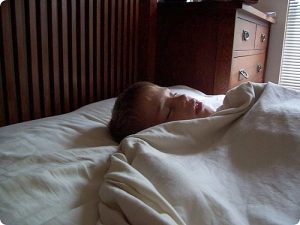 Rest has a prominent place among the fundamental pillars of health: nutrition, exercise, water, rest, sunlight, moderation, fresh air, and trust in divine power. There is no debate over its crucial role in the creation of optimal health and in the body’s defense against disease. So why is practicing a restful life so important, and how can we make the most of it?
Rest has a prominent place among the fundamental pillars of health: nutrition, exercise, water, rest, sunlight, moderation, fresh air, and trust in divine power. There is no debate over its crucial role in the creation of optimal health and in the body’s defense against disease. So why is practicing a restful life so important, and how can we make the most of it?
The Importance of Deep Sleep
Our bodies need more than superficial rest every night. They need deep sleep. Deep sleep releases growth hormone (HGH) that initiates cellular repair. It also supports adaptive immunity, allowing our immune system to assess threats and develop a strategy for counterattack. It actually boosts the production of specialized T cells that attack and destroy virus-infected cells. Even the health of the microbes in our microbiome that are so important to our optimal function and immunity are inextricably intertwined with good sleep. Poor sleep not only increases our susceptibility to infectious disease but also to chronic disease.
How Much Sleep?
In 2015, the National Sleep Foundation did something no one else had ever done. They systematically and rigorously reviewed the existing scientific literature to identify the ideal amount of time a we need to sleep according to our age.
Newborns (0 to 3 months): 14 to 17 hours of sleep
Infants (4 to 11 months): 12 to 15 hours of sleep
Toddlers (1 to 2 years): 11 to 14 hours of sleep
Preschoolers (3 to 5 years): 10 to 13 hours of sleep
School-aged children (6 to 13 years): 9 to 11 hours of sleep
Teenagers (14 to 17 years): 8 to 10 hours of sleep
Young adults (18 to 25 years): 7 to 9 hours of sleep
Adults (26 to 64 years): 7 to 9 hours of sleep
Older adults (65 years or older): 7 to 8 hours of sleep
For the first time we have science-based guidelines to help us make better decisions about how much sleep we need.
A Time For Sleep
Sleep during the early part of the night may be preferable. A leading sleep expert, Matthew Walker, has found that we are more likely to experience deep, reparative non-REM sleep earlier in the night, from 11 to 3 rather than from 3 to 7. Thus going to bed too late deprives us of some of the vital renewing benefits that non-REM sleep provides.
Walker’s conclusion is the result of bringing cutting-edge science together with decades of research and clinical practice. His advice is to get to bed early—seven to eight for children; nine or ten for adults—and get up earlier. Perhaps Benjamin Franklin was right after all:
“Early to bed and early to rise makes a man healthy, wealthy, and wise.”
Rest Is More Than Sleep
Sleep, though, is only a part of rest. Rest also encompasses our need for recreation and vacation breaks as well, to recharge and recuperate. These are not only vital to recovering our health but also to keeping it. Some of our best memories are of these happy times with the ones we love, and just their memory alone is enough to heal us. Without these breaks and deep breaths we would surely burn out.
Optimal rest also needs a weekly break. Through the millennia, this has been a cross cultural, time honored tradition from Jews, Christians, and Muslims to ancient Babylonians, Buddhists, and Pagans. Even secular governments such as China and communist Russia saw its benefit and had mandated days for rest. Taking a break from the cares of the week is wise, because the nonstop grind of perpetual work is a recipe for ruined health.
Finally, if that weekly break becomes a special day of spiritual rest—as with the Jewish and Christian Sabbath—then rest takes on an even larger meaning. It becomes a relationship, where we rest as children in God’s family. We forever walk away from the anxiety and fear of the world and fall asleep between our divine parents. This kind of rest replaces fear with trust, assurance, and peace.
Getting Rest Right
From the importance of a good night’s sleep to the spiritual rest of “Thou hast made us for thyself, and our heart is restless until it finds its rest in Thee,” it is crucial to get rest right. It is a significant force for dynamic health in the lives of those who experience it.
